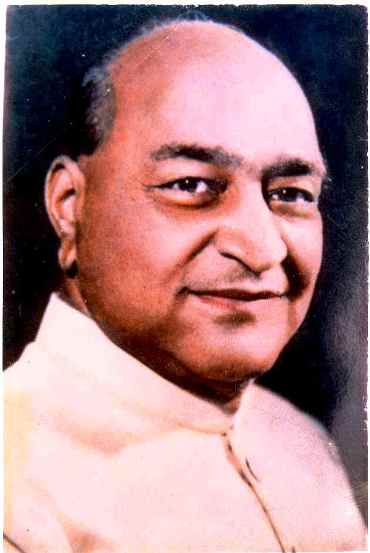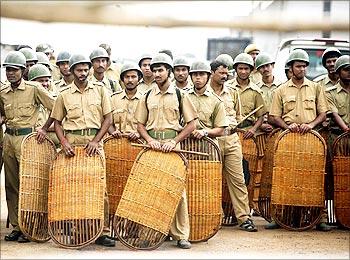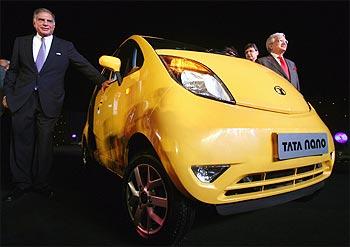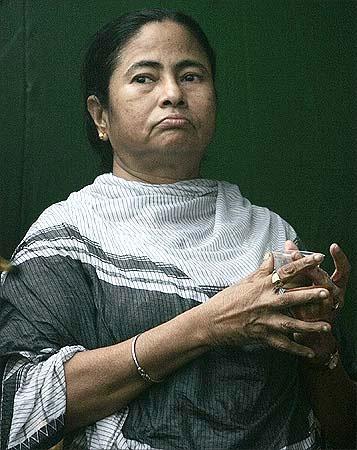What is common between Tatas and JK Organisation, besides the two being business giants?
Both had to move out of West Bengal for different reasons.
While Tata Motors had to shift its Rs 100,000-car project in 2008, JK Organisation had move all its businesses from the state way back in 1969.
The story of JK Organisation is mentioned in Sir Padampat Singhania: Man of All Seasons, a biography of the industrialist by his sons Gaur Hari and Govind Hari Singhania.
"The elections in West Bengal affected JK Organisation adversely. In 1969, the first CPI-M-led government was formed in Kolkata.
. . .
Why Singur was on the boil in 1969
Image: Policemen with riot gear stand guard inside the entrance of Nano factory.Photographs: Jayanta Shaw/Reuters
"Trouble soon started brewing at the extremely profitable JK Aluminium factory in Asansol," the book says.
According to the Singhanias, work came to a halt following violence by Marxist supporters and when the company approached the Jyoti Basu government seeking intervention, the chief minister failed to resolve the matter.
"When Sir Padampat was apprised of the situation, he advised for moving out all businesses from West Bengal.
"The JK Organisation's business interests in West Bengal were thus diluted and eventually closed down," the writers say.
. . .
Why Singur was on the boil in 1969
Image: Tata Motors chairman Ratan Tata (left) poses with Nano car.Photographs: Punit Paranjpe/Reuters
This book presents the story of the exemplary Sir Padampat, who was honoured with the title of The Knight of the British Empire, his closeness with politicians, his love for adventures and his overseas travels besides other things.
Sir Padampat was a member of the Constituent Assembly and a signatory to the Constitution but did not join active politics as he believed it was not his forte.
Like JK, Tata Motors, which was in the process of setting up the Nano car factory at Singur, also had to close operations in October 2008 and eventually move out of the state following protests over acquiring of land for the unit.
. . .
Why Singur was on the boil in 1969
Image: Mamata Banerjee.Photographs: Reuters
The Trinamool Congress-led Krishijami Jiban Jibika Raksha Committee opposed the takeover of farmland for the Tata project and held indefinite protests at the Nano factory site demanding return of 400 acres of land.
The protesters alleged that the land was forcibly taken from 'unwilling farmers' to build ancillary industries adjacent to the Tata Motors' main plant.
A total of 997.11 acres was acquired for the project, of which 691.66 acres belonged to farmers who gave their land willingly.
Tata Motors on the other hand claimed that they had to close operations as the then Left Front government failed to provide congenial environment and guarantee safety of their employees.





article